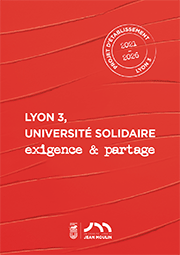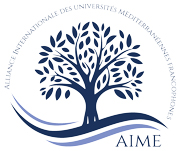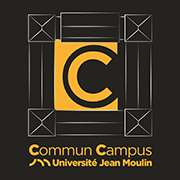AccueilRechercheProgrammes et productions scientifiquesThèsesThèses soutenuesThèses soutenues - 2006-2021Thèses soutenues - 2018
-
Partager cette page
- Recherche,
SAINT FLEUR William
La mobilisation des ressources humaines dans un contexte post-changement : Recherche-intervention dans une entreprise française, filiale d’un grand groupe pétrolier mondial
Publié le 29 janvier 2019 – Mis à jour le 27 août 2019
Thèse en Science de Gestion, soutenue le 26 septembre 2018.
La mobilisation des ressources humaines figure parmi les principales préoccupations des entreprises françaises, quels que soient leur taille et leur secteur d’activité, révèle la Fondation Nationale pour l’Enseignement et la Gestion des Entreprises (FNEGE). Une préoccupation tout-à-fait légitime au regard du manque à gagner que représente la non-mobilisation des personnes au travail en matière de performance. Car, grâce aux efforts dépassant les attentes normales et conformes aux objectifs organisationnels qu’ils fournissent, les salariés mobilisés participent au renforcement de la performance globale de leur entreprise. De plus, puisqu’ils sont ouverts à l’amélioration continue, ils adhèrent au changement et sont force de proposition. Dans un contexte où les entreprises sont obligées de changer constamment pour faire face à la concurrence et assurer leur survie, l’appréhension et la facilitation de la mobilisation de leurs collaborateurs constituent un enjeu majeur pour elles. Comment appréhender la mobilisation des salariés ? Comment la favoriser suite à des transformations organisationnelles ? Cette thèse s’efforce de répondre à ces questions. Elle vise, non seulement, à comprendre et expliquer les comportements de mobilisation suite à des transformations organisationnelles, mais aussi, à aider les praticiens des ressources humaines et les managers à agir sur ce phénomène dans ce contexte et éventuellement, au-delà. Pour observer la mobilisation des personnes au travail dans un contexte post-changement, nous avons effectué une recherche-intervention dans une PME française, filiale d’un grand groupe pétrolier mondial. L’interprétation et l’analyse de l’observation de ce phénomène ont été guidées par la théorie de l’échange social et la norme de réciprocité couplées avec l’analyse socio-technique et la théorie de la structuration. Les résultats ont montré que la mobilisation des ressources humaines est un phénomène complexe aux sources multiples, compensatoires et multiplicatrices.
According to the National Foundation for Business Education and Management (FNEGE), the mobilization of human resources is one of the main concerns of French companies, whatever their size and activity. This concern is absolutely legitimate in view of the shortfall that results from the non-mobilization of people at work in terms of performance. Because, thanks to their efforts which exceed the normal expectations and consistent with the organizational objectives, the mobilized employees contribute to enhance the overall performance of their company. Furthermore, they adhere to change and often make suggestions, since they are open to continuous improvement. In a context where companies are forced to change constantly in order to face the competition and ensure their survival, the apprehension and the facilitation of the mobilization of their employees constitute for them a major challenge. How to apprehend the mobilization of the employees? How to foster their mobilization following organizational transformations? This dissertation seeks to answer these questions. It aims not only to understand and explain mobilization behaviors following organizational change, but also to help human resources practitioners and managers to act on this phenomenon within this context and possibly, beyond. To observe the mobilization of people at work within a post-change context, we conducted an intervention research in a French SME, a subsidiary of a major world oil group. The interpretation and analysis of the observation of this phenomenon were guided by the social exchange theory and the norm of reciprocity coupled with socio-technical analysis and the theory of structuration. The results reveal that the mobilization of human resources is a complex phenomenon with multiple, compensatory and multiplying sources.
According to the National Foundation for Business Education and Management (FNEGE), the mobilization of human resources is one of the main concerns of French companies, whatever their size and activity. This concern is absolutely legitimate in view of the shortfall that results from the non-mobilization of people at work in terms of performance. Because, thanks to their efforts which exceed the normal expectations and consistent with the organizational objectives, the mobilized employees contribute to enhance the overall performance of their company. Furthermore, they adhere to change and often make suggestions, since they are open to continuous improvement. In a context where companies are forced to change constantly in order to face the competition and ensure their survival, the apprehension and the facilitation of the mobilization of their employees constitute for them a major challenge. How to apprehend the mobilization of the employees? How to foster their mobilization following organizational transformations? This dissertation seeks to answer these questions. It aims not only to understand and explain mobilization behaviors following organizational change, but also to help human resources practitioners and managers to act on this phenomenon within this context and possibly, beyond. To observe the mobilization of people at work within a post-change context, we conducted an intervention research in a French SME, a subsidiary of a major world oil group. The interpretation and analysis of the observation of this phenomenon were guided by the social exchange theory and the norm of reciprocity coupled with socio-technical analysis and the theory of structuration. The results reveal that the mobilization of human resources is a complex phenomenon with multiple, compensatory and multiplying sources.
Mots-clés : Mobilisation des ressources humaines, mobilisation individuelle, mobilisation collective, changement organisationnel, recherche-intervention.
Keywords : Mobilization of human resources, individual mobilization, collective mobilization, organizational change, intervention research.
Directeur de thèse : Vincent CRISTALLINI
Membres du jury :
Madame Martine BRASSEUR, Professeure des Universités, Université Paris Descartes
Madame Dominique PEYRAT-GUILLARD, Professeure des Universités, Université d'Angers
Monsieur Vincent CRISTALLINI, directeur de thèse, Maître de conférences HDR, Université Jean Moulin Lyon 3
Monsieur Didier VINOT, Professeur des Universités, Université Jean Moulin Lyon 3
Madame Valérie ESSIG, Responsable RH et ICT, Entreprise française, filiale d'un grand groupe pétrolier mondial.
Président du jury : Didier VINOT
Documentation
Mise à jour : 27 août 2019







